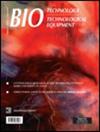保加利亚人口对抗生素知识、态度和使用情况的调查
IF 1.4
4区 生物学
Q4 BIOTECHNOLOGY & APPLIED MICROBIOLOGY
引用次数: 3
摘要
抗菌素耐药性自然发生,但与抗生素使用相关的人类活动(例如,过度使用和误用抗菌素)会增强耐药性。我们的研究旨在深入了解保加利亚普通人群使用抗生素的知识、态度和做法。在2022年4月至5月的4周期间进行了横断面调查。我们的样本包括516名参与者,其中398名(77.1%)是女性,主要是保加利亚人,具有大学学位(硕士学位58.9%;本科学历17.2%),居住在大城市(91.5%)。所有年龄组的应答者去年服用抗生素的主要健康原因是支气管炎、喉咙痛、感染(包括尿路感染)和肺炎。有趣的是,大约14%的受访者用抗生素治疗过sars -2冠状病毒感染。我们的结果突出了调查样本中对抗生素使用的现有态度。总体而言,来自所有年龄组的答复者对抗生素治疗的态度相似。人们对抗生素的行为和行动在抗生素耐药性的传播中起着重要作用。我们的研究提供了一些重要的见解有关知识和实践有关抗生素的使用和抗微生物药物耐药性在保加利亚人口。总的来说,在被调查的样本中,对抗生素使用和抗菌素耐药性有很好的了解。本文章由计算机程序翻译,如有差异,请以英文原文为准。
A survey of knowledge, attitudes and use of antibiotics among Bulgarian population
Abstract Antimicrobial resistance occurs naturally but is enhanced by human activities related to the use of antibiotics (for example, excessive use and misuse of antimicrobial agents). Our study aimed to gain insight into the knowledge, attitudes and practice of the use of antibiotics among the general Bulgarian population. A cross-sectional survey was conducted during a 4-week period in April-May 2022. Our sample included 516 participants of whom 398 (77.1%) were females, mainly Bulgarians by ethnic group, with a university degree (master degree 58.9%; bachelor degree 17.2%) and living in big regional cities (91.5%). The main health reasons that respondents from all age groups share for taking antibiotics in the last year were bronchitis, sore throat, infections, including urinary tract infections, and pneumonia. Interestingly, about 14% of the respondents have treated the SARS-2-coronavirus infection with antibiotics. Our results highlighted existing attitudes toward antibiotic use in the surveyed sample. Overall, respondents from all age groups showed similarities in their attitudes toward treatment with antibiotics. People’s behavior and actions toward antibiotics play an important role in the spread of antimicrobial resistance. Our study provided some important insights concerning the knowledge and practices related to antibiotic use and antimicrobial resistance in the Bulgarian population. In general, good knowledge of antibiotic use and antimicrobial resistance was evident among the surveyed sample.
求助全文
通过发布文献求助,成功后即可免费获取论文全文。
去求助
来源期刊

Biotechnology & Biotechnological Equipment
工程技术-生物工程与应用微生物
CiteScore
3.10
自引率
0.00%
发文量
90
审稿时长
1 months
期刊介绍:
Biotechnology & Biotechnological Equipment (B&BE) is an international open access journal publishing cutting-edge research. A modern world requires modern biotechnology and nanobiology. The journal is a forum that provides society with valuable information for a healthy and better life and promotes “the Science and Culture of Nature”.
The journal publishes original research and reviews with a multidisciplinary perspective; expanded case reports with a focus on molecular medical research and advanced practice in evidence-based medicine are also considered.
 求助内容:
求助内容: 应助结果提醒方式:
应助结果提醒方式:


